Results
-
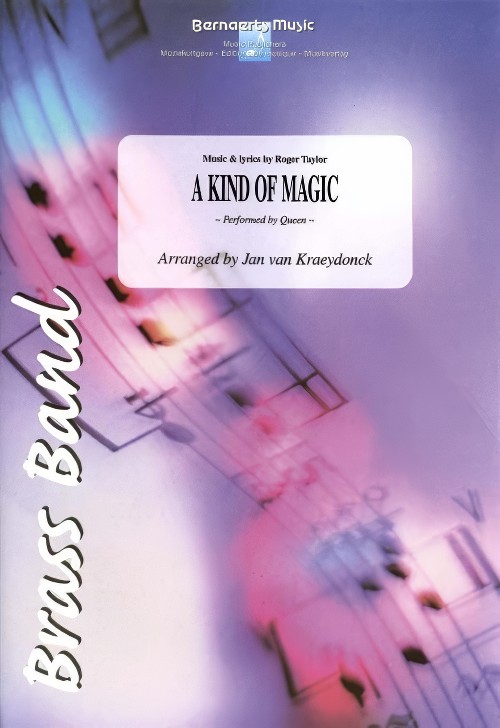 £53.99
£53.99A Kind of Magic (Brass Band - Score and Parts) - Taylor, Roger - Kraeydonck, Jan van
As performed by Queen. Duration: 3.30
Estimated dispatch 7-14 working days
-
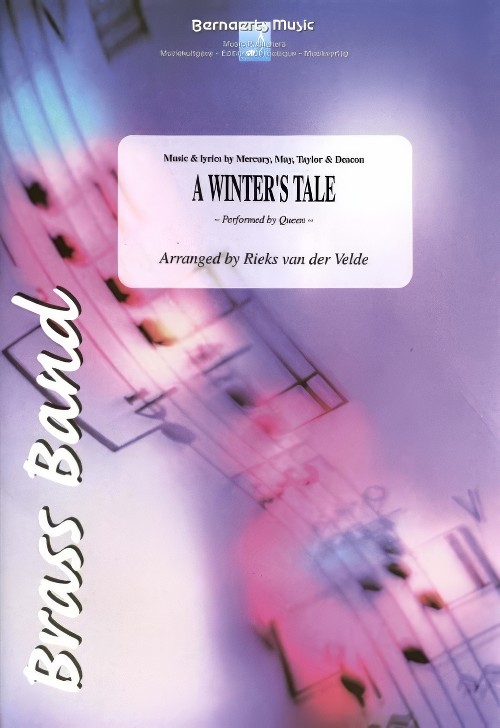 £53.99
£53.99A Winter's Tale (Brass Band - Score and Parts) - Velde, Rieks van der
As performed by Queen. Duration: 4.00
Estimated dispatch 7-14 working days
-
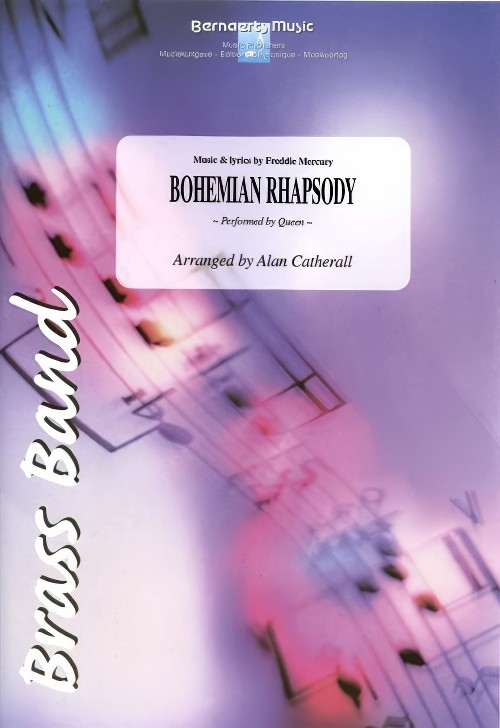 £56.99
£56.99Bohemian Rhapsody (Brass Band - Score and Parts) - Mercury, Freddie - Catherall, Alan
Performed by Queen. Duration: 06:30
Estimated dispatch 7-14 working days
-
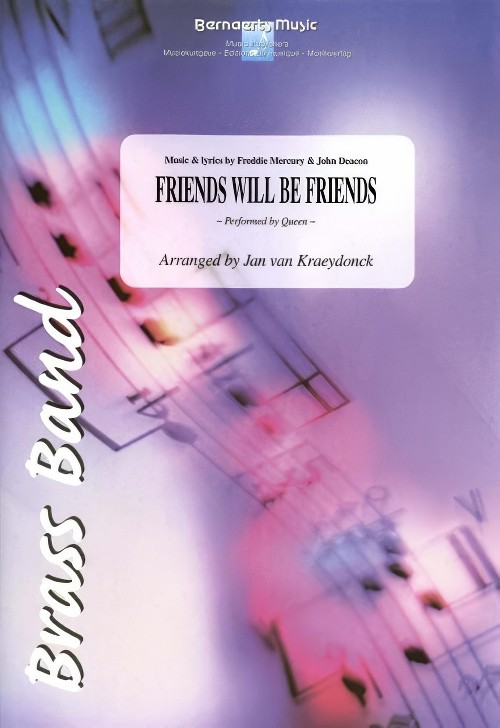 £53.99
£53.99Friends Will be Friends (Brass Band - Score and Parts) - Deacon & Mercury - Kraeydonck, Jan van
Performed by Queen. Duration: 04:10
Estimated dispatch 7-14 working days
-
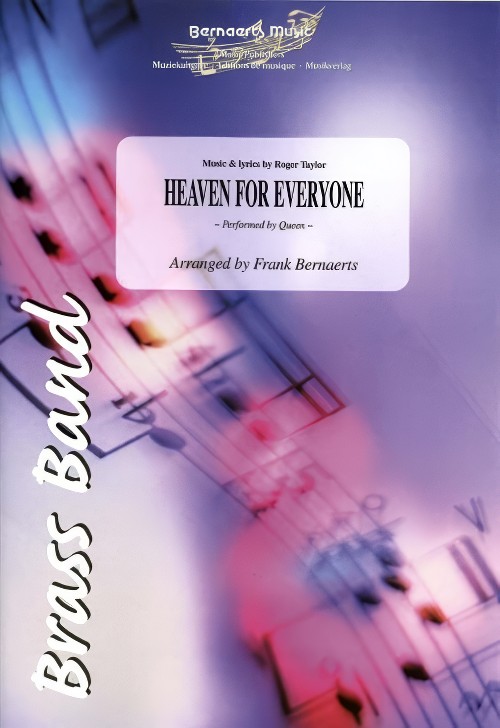 £50.99
£50.99Heaven for Everyone (Brass Band - Score and Parts) - Taylor, Roger - Bernaerts, Frank
Performed by Queen. Duration: 03:30
Estimated dispatch 7-14 working days
-
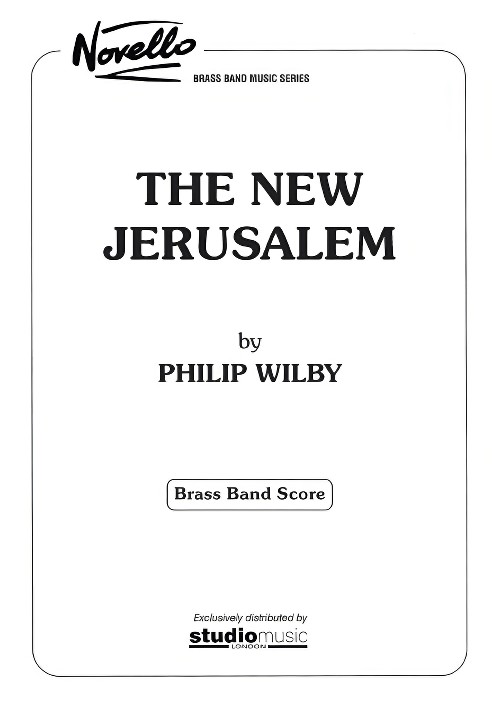 £44.95
£44.95The New Jerusalem (Brass Band - Score only) - Wilby, Philip
The New Jerusalem was commissioned by the National Youth Brass Band of Great Britain, and first performed by them at City Hall, Salisbury on 20 April 1990 and then the following day in London's Queen Elizabeth Hall. The original version was thus intended for their very large group of gifted players, and is available from the Novello Hire library.This present Contest Version is a thorough revision of that original score, redesigned for a conventional number of players, and recast as a score which contains considerable scope for solo performers within the band.Recorded on Polyphonic QPRL056D National Brass Band Championships of Great Britain and Gala Concert - 1992
Estimated dispatch 7-14 working days
-
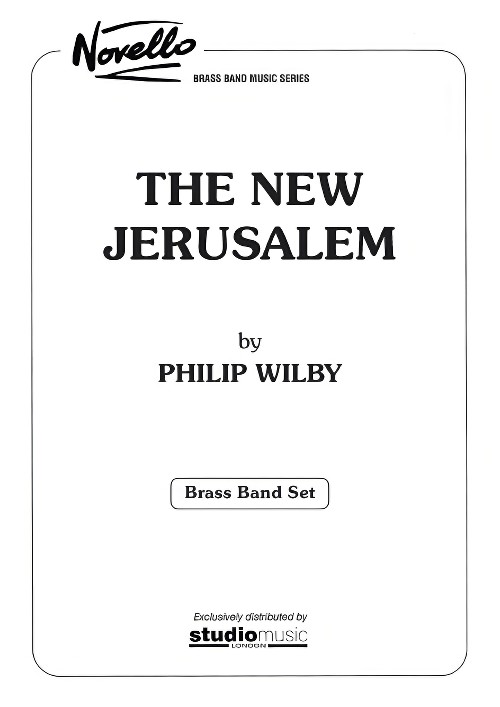 £94.95
£94.95The New Jerusalem (Brass Band - Score and Parts) - Wilby, Philip
The New Jerusalem was commissioned by the National Youth Brass Band of Great Britain, and first performed by them at City Hall, Salisbury on 20 April 1990 and then the following day in London's Queen Elizabeth Hall. The original version was thus intended for their very large group of gifted players, and is available from the Novello Hire library.This present Contest Version is a thorough revision of that original score, redesigned for a conventional number of players, and recast as a score which contains considerable scope for solo performers within the band.Recorded on Polyphonic QPRL056D National Brass Band Championships of Great Britain and Gala Concert - 1992
Estimated dispatch 7-14 working days
-
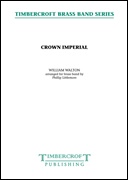 £45.00
£45.00Crown Imperial, March (Brass Band - Score and Parts) - Walton, William - Littlemore, Phillip
William Walton composed his Crown Imperial for performance at the coronation of King Edward VIII, which was scheduled for the 12th May 1937. However, due to the dramatic abdication of Edward, it was in fact performed at the Coronation of the new monarch, King George VI, which took place on the same scheduled date. The march became popular immediately, and arrangements for piano solo, organ, small orchestra and military band were all published within a year. It has been used at all Royal events since, most notably the Coronation of Queen Elizabeth II in 1953. This new brass band transcription?is in keeping with the shorter, 6-minute concert version that Walton created immediately following the Coronation of George VI. However, the scoring is more in keeping with contemporary brass band voicings, and provides an exciting version for brass band.?Duration: 7:00
Estimated dispatch 7-14 working days
-
 £40.00
£40.00Magic Flute Overture, The (Brass Band - Score and Parts) - Mozart, Wolfgang Amadeus - Littlemore, Phillip
Mozart's The Magic Flute is a two-act opera composed in 1791, the year of his death. It was the culmination of a period of increasing involvement by Mozart with Emmanuel Schikaneder's theatrical troupe, which since 1789 had been the resident company at the Theater auf der Wieden. The Magic Flute is noted for its prominent Masonic elements; both Schikaneder and Mozart were believed to be Masons and also lodge brothers. Much of Mozart's Masonic music is written in the key of E flat. This key, with 3 flats is indicative of Masonic symbolism. There are other examples of the number three in the opera as well. The opening chords of the introduction sound three times, which also happens during the Temple scenes. Also represented in threes are the three temples of Wisdom, Reason and Nature. Tamino tries to open the three doors of the temple. There are three ladies, the attendants to the Queen of the Night, and three boys who serve as guides to Tamino and Papageno. Duration: 6:30
Estimated dispatch 7-14 working days
-
 £49.95
£49.95PURCELL VARIANTS (Brass Band Set) - Meechan, Peter
Purcell Variants was composed for the Black Dyke Band, and is dedicated to their musical director, Nicholas Childs. The work is based on Purcell's Queen Mary's Funeral Music, and is divided into three contrasting movements; I - Introduction; II - Elegy; III - Finale. Duration: 13:00
Estimated dispatch 7-14 working days
